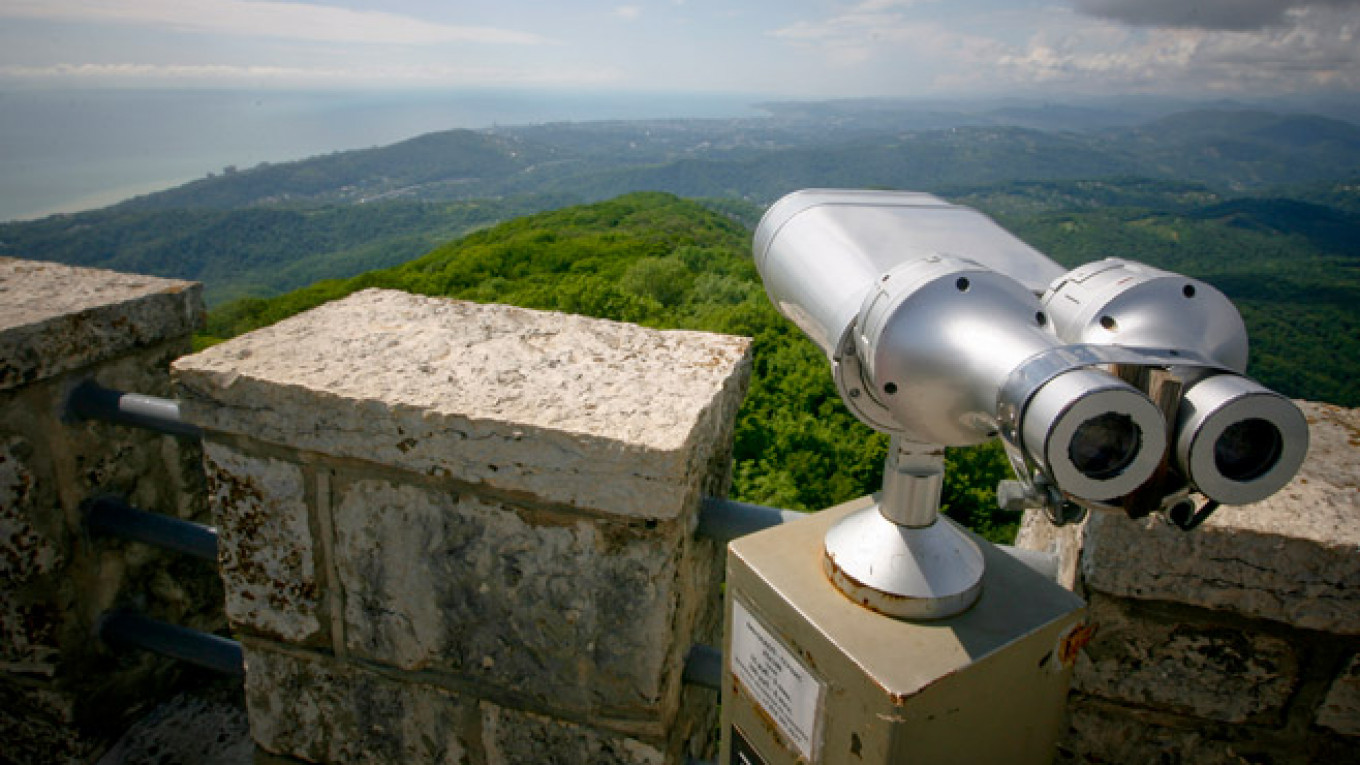The Russian ruble's spectacular falls this year have been relentlessly portrayed as bad news. But with the ruble now down some 45 percent against the U.S. dollar since January, are there no winners?
Companies that produce in Russia but sell abroad are bound to reap more benefit than before. The government looks set to receive windfall quantities of rubles from oil sales taxes, even if they are worth less. Hoteliers can hope for influxes of foreign tourists keen to use their new buying power, and — though Moscow may not be grateful for it — ruble weakness plays into the hands of foreign powers.
Russia's State Budget
President Vladimir Putin has repeatedly said the falling ruble compensates for the drop in oil price by bringing more rubles for less dollars.
Taxes on oil and gas exports supply over half of Russia's budget revenues, and with the value of the ruble falling faster than the price of oil, Russia will on paper be richer than before.
In an interview with news website RBC on Tuesday former Deputy Economy Minister Andrei Klepach estimated that the budget would receive up to 900 billion rubles ($13.7 billion) more due to currency devaluation.
"But as the economy contracts in real terms the benefit will be very small, around 50-100 billion," said Klepach, who now serves as deputy chairman of state-owned Vnesheconombank.
While the budget will get more rubles from exports, social spending will have to be increased due to spiraling inflation this and next year. Ruble weakness stokes inflation by raising the cost of imports and cross-border services, and prices have already increased 9.4 percent since the beginning of this year, the State Statistics Service said Wednesday.
Ignat Ignatyev, a pensions official at the labor ministry, told the TASS news agency on Wednesday that the government will raise pensions above the inflation rate.
Export Stimulus
Russian export-oriented industries will get more rubles for their products sold abroad, and if they have already invested in modernizing their production they can for a time avoid purchasing foreign machinery that is now much more expensive, said Semyon Morozov, head of Moscow research and basic materials analyst at Credit Suisse Russia. He listed steel, chemicals and timber among the likely benefactors.
"The farther you are away from the Russian customer, the safer you are now," he said in a phone interview.
Russian automakers will also seek more customers abroad. The Lada Granta car, produced by Russia's AvtoVAZ, is now the sixth cheapest car in the world, according to research by RBC. AvtoVAZ sold only 2,232 cars in Europe in the first nine months of this year, but the company is leaping on its new-found competitiveness with plans to increase its exports abroad.
Local and International Tourist Boom
At the beginning of December the Roza Khutor alpine resort in Sochi, one of the main venues of the 2014 Winter Olympics, announced it would hike the price of peak-season ski passes by 43 percent.
In an interview with the Izvestia newspaper last week, the resort's head Sergei Bachin said the move was due to unprecedented demand that arrived "like a tsunami" at the beginning of November — as ruble declines accelerated. The resort has now oversold its capacity for the New Year's holiday season.
With ruble weakness making foreign trips too pricey for many Russians, domestic tourism has enjoyed a 30 percent increase in tourist numbers this year, the Federal Tourism Agency's acting head Oleg Safonov said at the international tourist forum in Sochi last month, RBC reported.
Foreign tourists are more likely to visit Russia to take advantage of their money's new-found buying power.
Customers from around the world have already rushed into Russian stores to get bargains. Chinese online buyers and visitors to Russia have spent 85 percent more this year, according to the data acquired by RBC. Austrians spent 28 percent more, while Latvians dished out an extra 19 percent.
"The problem with incoming tourism is Russia's image, which was tarnished by the Western media coverage of the Ukraine conflict," Nikolai Kondrashov, leading researcher at the Center for Development of the Higher School of Economics in Moscow, told The Moscow Times in a phone interview.
"This seriously undermines Russia's attractiveness as a tourist destination," he said.
Weaker Russia to Benefit International Actors
Foreign countries also stand to benefit from a weaker ruble and an economically drained Russia, as it undermines Moscow's bargaining strength. China will be willing to exploit Russia's weakness by launching the expansion into Central Asia, which was demonstrated by Chinese President Xi Jinping's 10-day September tour of the region.
By abandoning the South Stream project Putin has also provided Turkey with a powerful bargaining chip with regard to future Russian gas supplies to Southern Europe.
In his annual address to the federal assembly this month Putin said "the quality and scale of our economy must correspond to our geopolitical and historical role." With the ruble plunge and economic slowdown, this goal now looks more elusive than before.
Contact the author at i.nechepurenko@imedia.ru
A Message from The Moscow Times:
Dear readers,
We are facing unprecedented challenges. Russia's Prosecutor General's Office has designated The Moscow Times as an "undesirable" organization, criminalizing our work and putting our staff at risk of prosecution. This follows our earlier unjust labeling as a "foreign agent."
These actions are direct attempts to silence independent journalism in Russia. The authorities claim our work "discredits the decisions of the Russian leadership." We see things differently: we strive to provide accurate, unbiased reporting on Russia.
We, the journalists of The Moscow Times, refuse to be silenced. But to continue our work, we need your help.
Your support, no matter how small, makes a world of difference. If you can, please support us monthly starting from just $2. It's quick to set up, and every contribution makes a significant impact.
By supporting The Moscow Times, you're defending open, independent journalism in the face of repression. Thank you for standing with us.
Remind me later.


